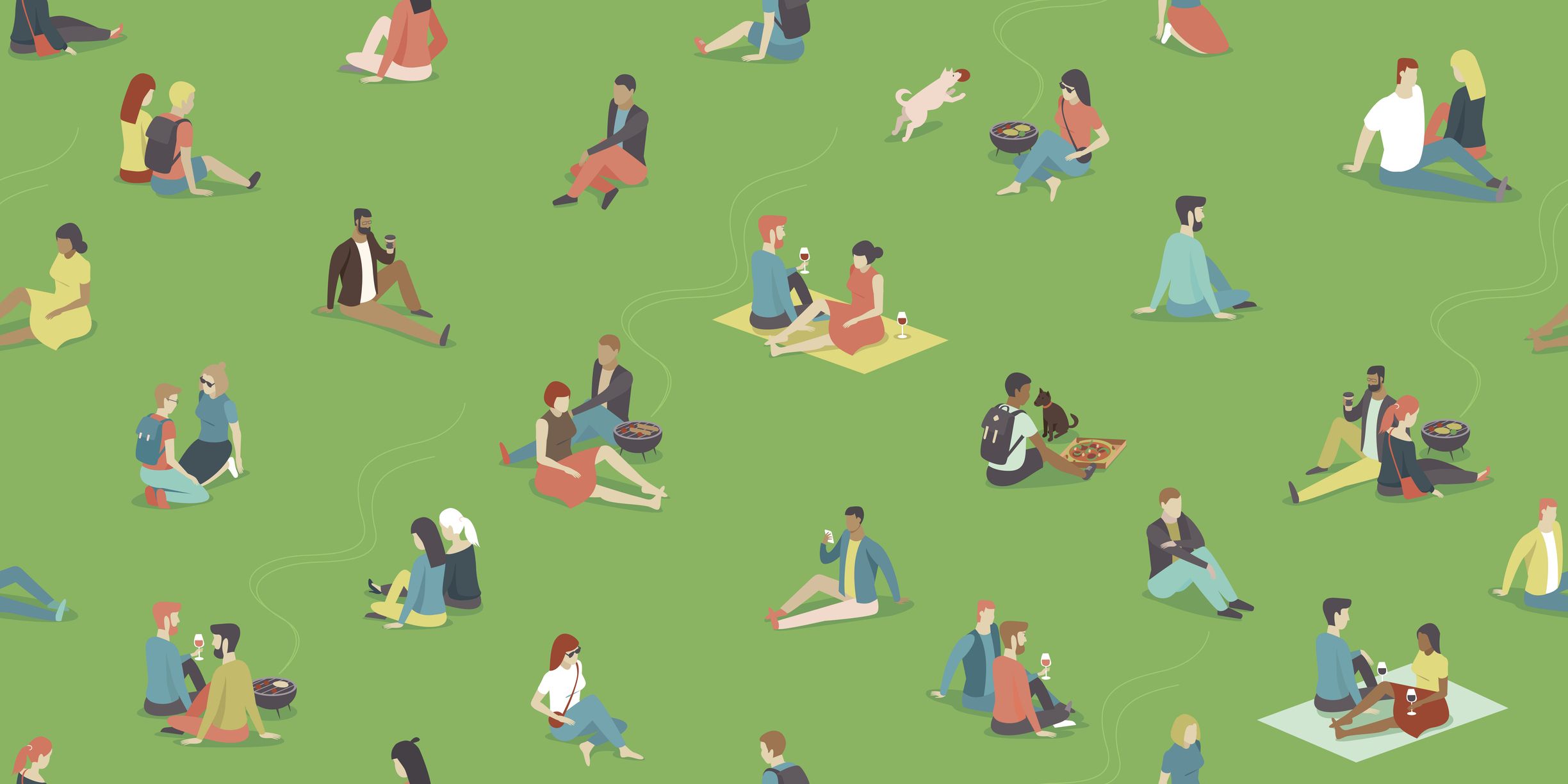- study finds one-third of people with covid-19 lie about it
- how much honesty do we owe each other?
- communicate, don’t shame
a friend invites you to brunch, but you’re wary about eating indoors. plus, you’re not sure who else is going, or where they’ve been.oh, what to do.you could ask for more detail about the other guests, and politely ask whether or not they have been taking the same covid-19 precautions as you. but according to a recent study, you may not get the truth.brock university psychology researchers studied 451 american adults between 20 and 82 and found that one-third of people who
contracted the virus would deny having symptoms. thirty-four percent of those who tested positive said they had denied having symptoms when asked, and 55 per cent reported they had concealed their symptoms to some degree.a quarter of participants reported that they had lied about how much they were following physical distancing protocols — and those who had covid-19 were more likely to lie. women were more likely than men to readily disclose their health symptoms, and older adults were more honest about their behaviour than younger participants.and though this is a u.s.-based study, telling white lies about experiences with covid-19, is not isolated to americans.
“we think it’s very likely that here in canada, we’re feeling the same type of pressure that might lead us to conceal some of our experiences,” says alison o’connor, a phd student at brock university and lead author on the study published in the journal of health psychology. why we lie
lying feels easier and safer than being honest, which can put us in more vulnerable situations, says o’connor, who studies lie-telling behaviours.“for example, if i weren’t following social distancing protocols completely, and i disclosed that information to others, while that would be the morally correct thing to do, it’s going to negatively impact me,” she says. “i might feel embarrassed that others are scrutinizing or negatively evaluating my behaviour.”concealing that information can protect ourselves and our image, but then, negatively impact others, she says.
honesty really is the best policy
given the potential consequences of dishonesty — possibly infecting others with covid-19 — telling the truth about things like symptoms and exposure is important, says
angela evans, associate professor in the psychology department at brock university.“honesty will be important for stopping the spread of covid-19 and also maintaining trusting relationships with others during and after the pandemic,” she says.
more surveillance leads to more lying
in pre-covid times, we wouldn’t have given much thought to how our friendsgiving dinners would directly impact our grandparents at the family thanksgiving. but let’s face it: this is not the year to hop from one intimate dinner gathering to the next.and while it’s tempting to fudge the truth and pretend to be taking all the right virus prevention steps to avoid being judged and feeling badly, it’s more important than ever to be clear about the risks you may or may not have been taking. particularly for the safety of those around you.
o’connor acknowledges that although this degree of openness may come with a discomfort of sharing personal or sensitive information, this is the right thing to do if you want to safely partake in social gatherings.“if you are going to be
physically close to other people, it’s important to disclose who you’ve seen, or if you’ve been following the guidelines if they ask you,” she says. “they’re trying to protect their own health, and if they’re going to spend time with you, they need to know the safety or risks that could come with that.”
transparency isn’t only for guests
it’s equally important for hosts to be open with guests.“if you’re throwing a social gathering, outline the specific details of whether [the event] is inside or outside, how much space for social distancing there will be, and the number of people who are going,” says o’connor, adding that this helps guests decide for themselves whether or not they are comfortable attending. “but remember that at the end of the day, it is up to each person to abide by the regulations you’re trying to enforce.”
instead of shaming liars, foster open communication
still, no matter how you may strive for open dialogue and honest conversations, there are going to be times when we lie — or at least stretch the truth a little. the question is how do we manage this grey zone safely, for ourselves and for others?“even though we should be telling the truth, have some compassion for yourself or for others who may be lying,” says o’connor, chalking up the indiscretions to anxiety, fear and embarrassment. “let’s recognize how difficult it is to tell the truth.”she encourages more honest and open communication, less shaming and a healthy dose of acceptance.“instead of going into every situation expecting that everyone has been completely honest, i think we can recognize there is a degree of dishonesty and secrecy across groups and communities,” she says. “that’s just something to keep in the back of our minds when we are thinking about how comfortable we are going to certain events.”
dduong@postmedia.com |
@dianaduodon’t miss the latest on covid-19, reopening and life. subscribe to healthing’s newsletter coming out of covid for daily updates on the top 世界杯决赛2022 and the healthing weekender delivered to your inbox on saturday.
 4 minute read
4 minute read








